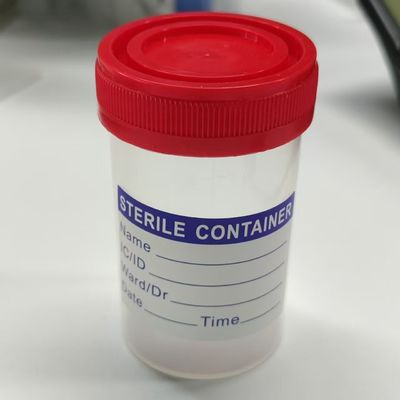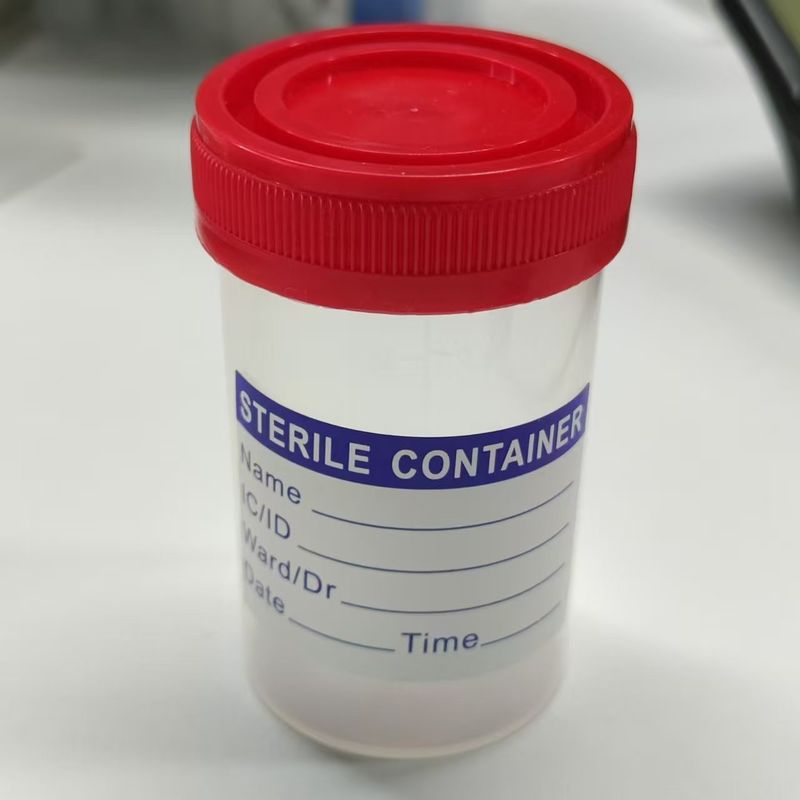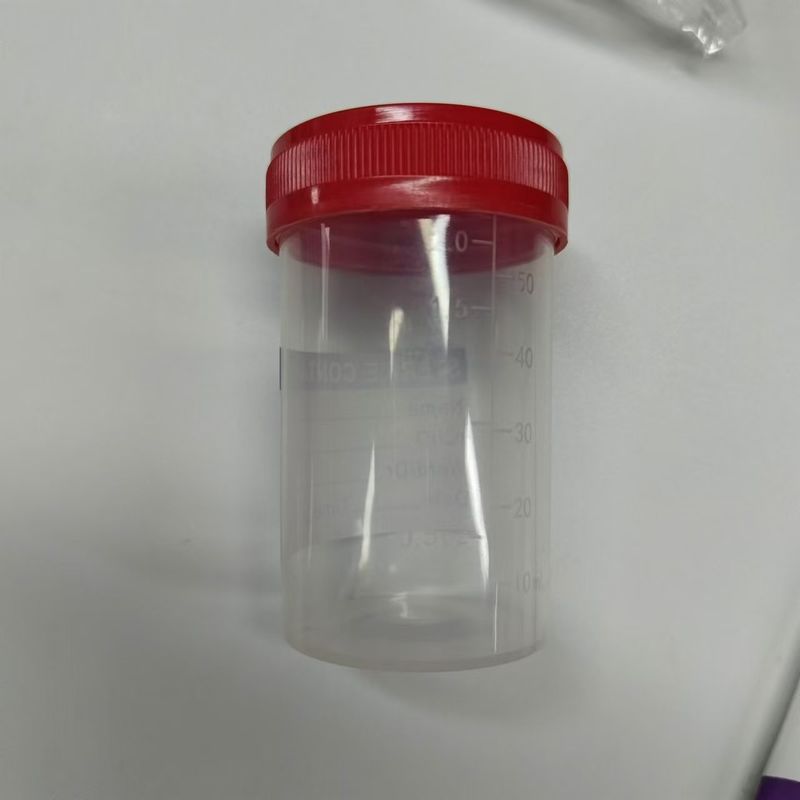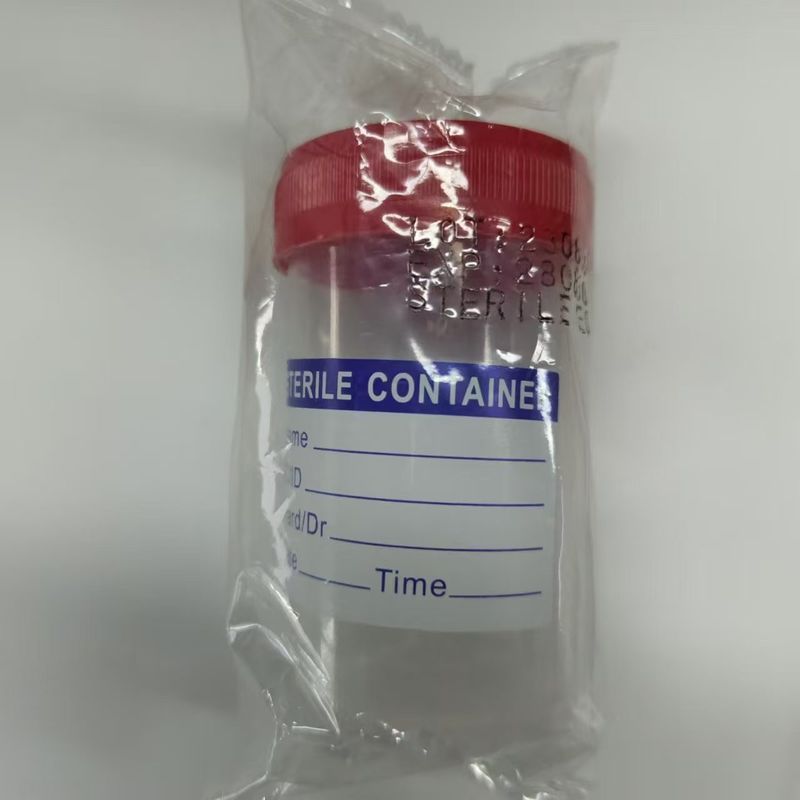
Urine Container Sterile Sample Specimen Cup With Label 15ml-120ml Sterile Urine Container
-
Highlight
120ml Urine Container
,Sterile Sample Specimen Cup
,15ml Urine Container
-
NameUrine Container
-
Disinfecting TypeETO Sterilization
-
Size120ml
-
StockNo
-
Shelf Life5 Years
-
MaterialMedical Grade PP/PE
-
Quality CertificationCE/ISO
-
Instrument ClassificationClass I
-
Safety StandardSafety
-
PropertiesSafety
-
ApplicationMedical Care
-
ColorAccustomed
-
TypeContainers
-
FunctionSafety
-
PackingIndividual Pack
-
OEMAccept OEM
-
SampleSample Provided
-
UsageSingle-use
-
Place of OriginChina
-
Brand NameHenan
-
CertificationCE
-
Model NumberCan be Customized
-
Minimum Order Quantity5000pcs
-
PriceNegotiable
-
Packaging DetailsIndividual Packing
-
Delivery Time24-30 days
-
Payment TermsL/C, T/T
-
Supply Ability50000000pcs per month
Urine Container Sterile Sample Specimen Cup With Label 15ml-120ml Sterile Urine Container
Urine Container Sterile Sample Specimen Cup with label 15ml-120ml Sterile Urine Container
1.Product Description
The Urine Cup is a portable container used for collecting urine samples. Typically made of transparent plastic, it has a moderate capacity, making it convenient for carrying and using. The Urine Cup is widely utilized in medical facilities, laboratories, and households for urine analysis, disease diagnosis, drug testing, and other purposes.
Designed for ease of use, this product facilitates the collection, storage, and transportation of urine samples, ensuring the purity and integrity of the specimens. With a secure sealing lid, the Urine Cup prevents leaks and contamination. Its straightforward design enables users to handle it with ease, without concerns about sample contamination or damage.
In conclusion, the Urine Cup serves as an effective tool for urine collection, playing a crucial role in the medical and health sectors by providing essential sample data for diagnosis and treatment purposes.
2.Key Features
- Portable Design: The Urine Cup is compact and easy to carry, making it convenient for use in various settings such as medical facilities, laboratories, and homes.
- Transparent Construction: Made of clear plastic, the Urine Cup allows for easy visibility of the urine sample, enabling quick inspection and analysis.
- Moderate Capacity: With a suitable volume for urine collection, the Urine Cup provides ample space for the sample without being bulky.
- Secure Sealing Lid: Equipped with a tight-fitting lid, the Urine Cup prevents leaks and maintains the integrity of the sample during storage and transportation.
- Easy-to-Use Design: The simple design of the Urine Cup ensures straightforward handling for users, facilitating efficient collection and handling of urine samples.
- Versatile Application: Suitable for a range of purposes including urine analysis, disease diagnosis, drug testing, and other medical and health-related procedures.
- Hygienic and Reliable: The Urine Cup is designed to ensure the purity and cleanliness of urine samples, minimizing the risk of contamination and ensuring accurate test results.
- Durable Material: Constructed from quality materials, the Urine Cup is sturdy and reliable for repeated use, offering long-lasting performance.
- Essential Medical Tool: As a fundamental tool for urine sample collection, the Urine Cup plays a vital role in providing crucial data for diagnostic and treatment purposes in healthcare settings.
3.Product picture
![]()
4.Product Information
| Cat.NO. | Size(ml) |
| AL22112760 | 100 |
| AL22112710 | 60 |
5.What is a urine cup used for?
The urine collection cup is a sterile plastic cup with a temperature strip and leak resistant lid with a capacity of 90mL. This product can be used for urine, blood and semen sample testing.
6.How long is urine in a cup good for?
There's never a need to freeze a urine sample, because you won't want to use a sample that's older than about a day as it no longer accurately reflects the state of your health, Dr. Moore notes. So, don't pee in a cup three days before your appointment and expect it to keep.
7.How much urine is needed for a test?
These guidelines should be followed for submission of urine tests: Collect at least 10 ml of urine. We try and standardize the volume of urine used for urinalysis. This is impossible to do if samples ranging from 0.5 ml (way too little to do anything useful with) to 100 ml are collected.
8.Why is early morning urine the best sample to be tested?
Your doctor may, for example, request a first morning sample because the urine is more concentrated and therefore it is more likely to show up any abnormalities. Or if the doctor is looking for glucose in the urine they may ask you to collect a sample after a meal. You will probably be asked for a “mid-stream” sample.



